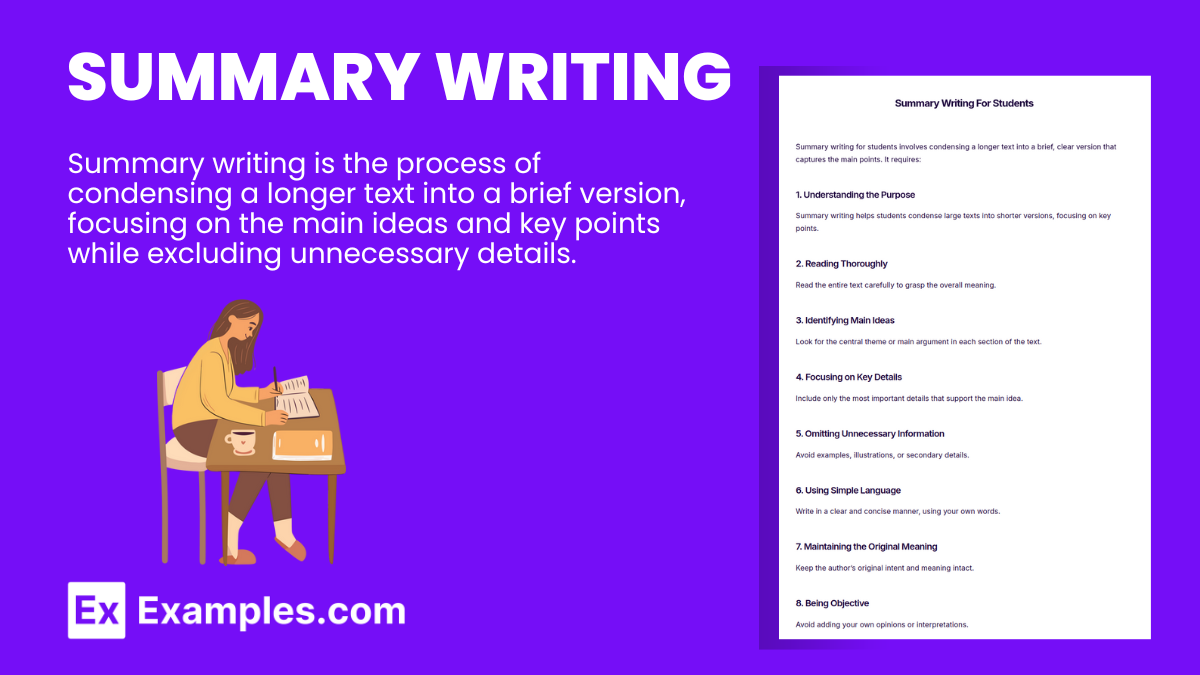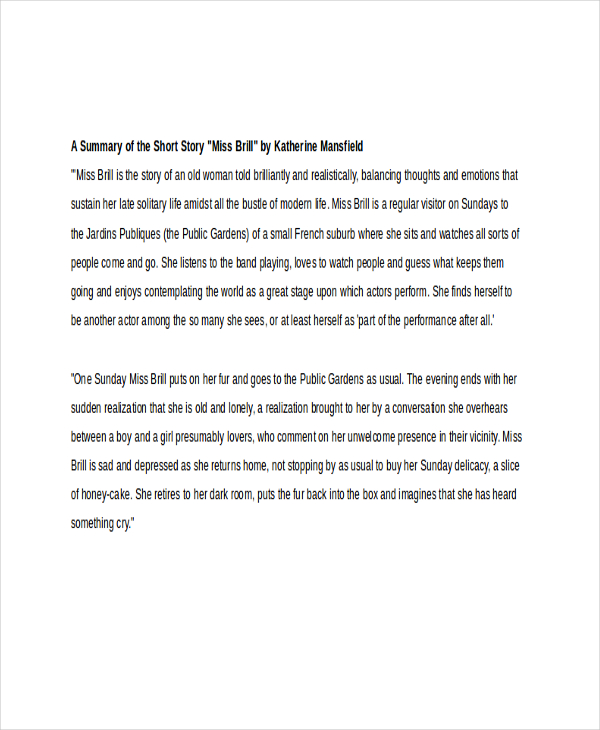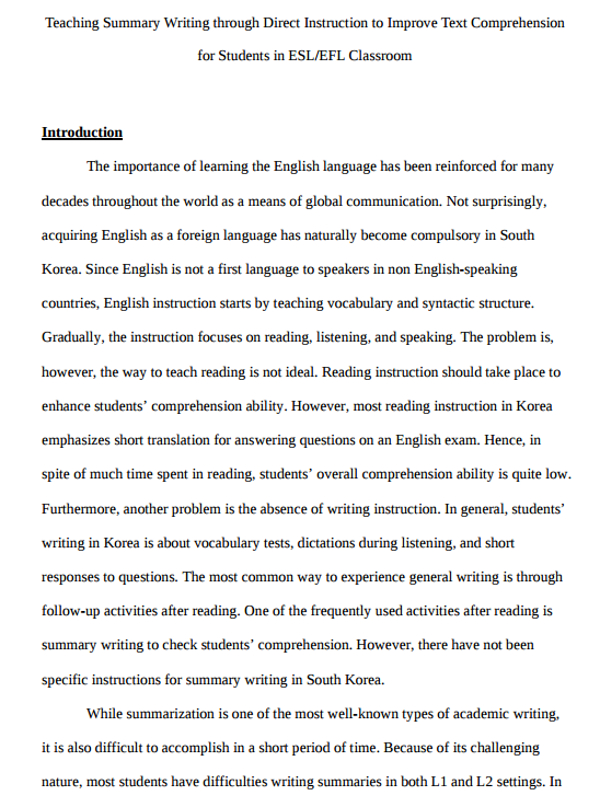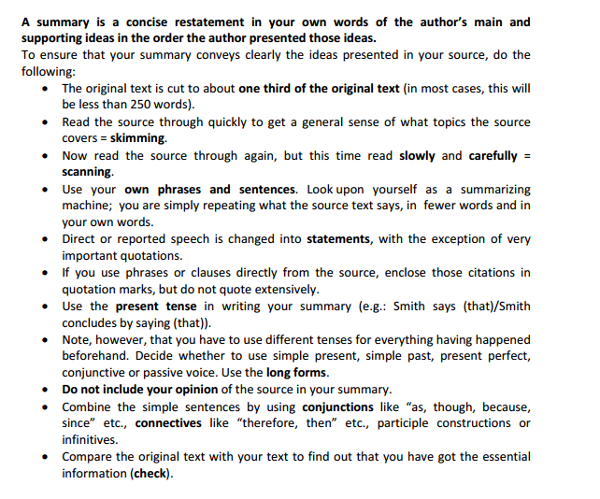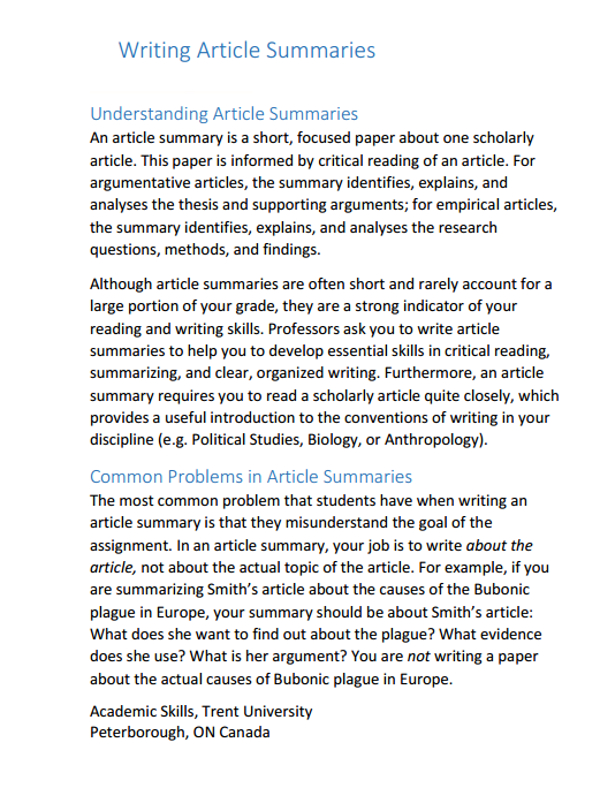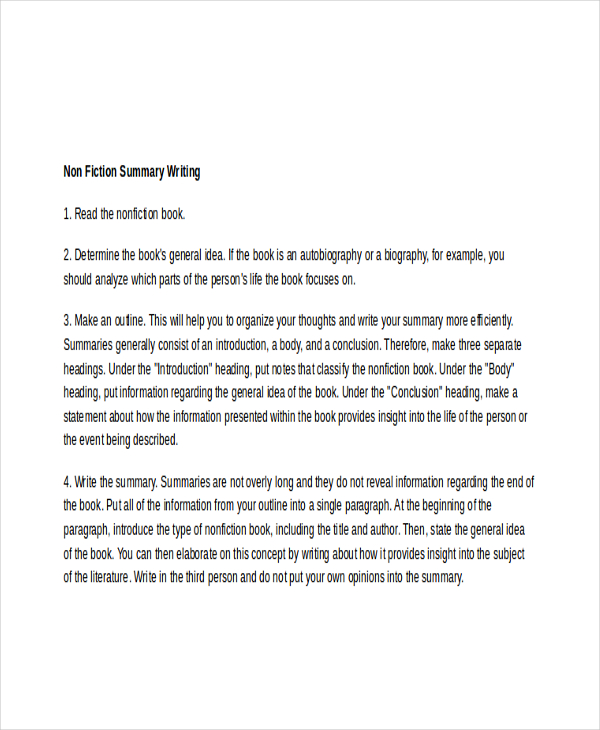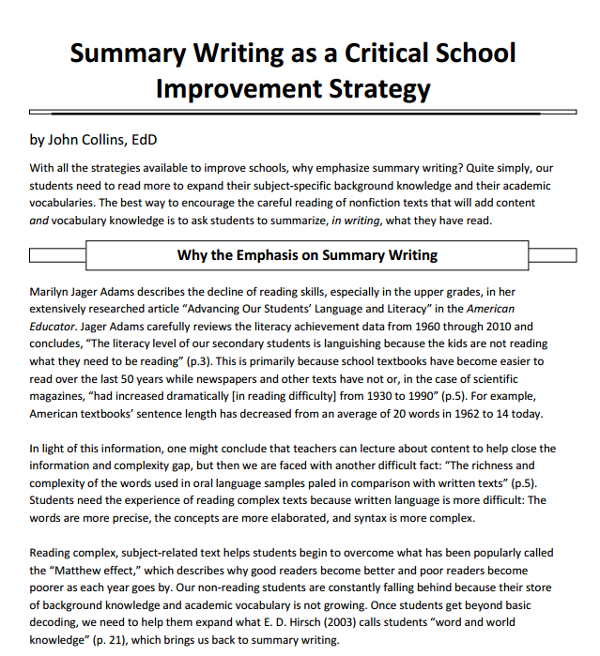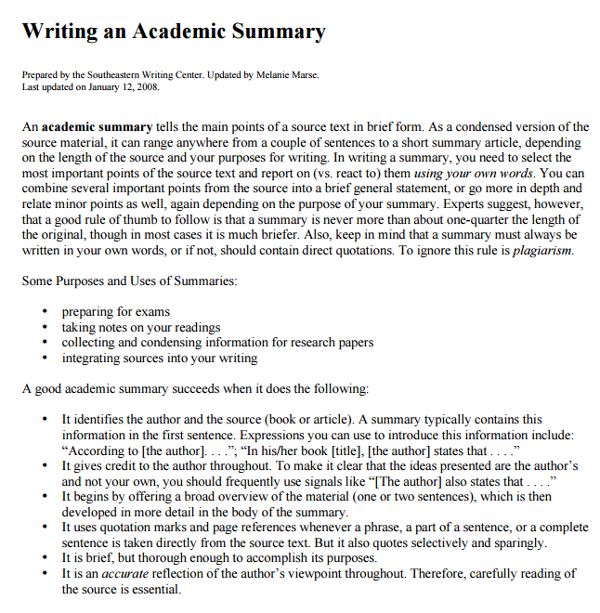13+ Summary Writing Examples
In every simple statement or any formal dissertation, you can always find a summary. It is the part where the writer does a recap and states the highlights of the whole point that he/she is making. It is also where suggestions and recommendations are provided in order to give a clear view of the subject.
Every discourse or essay parts is composed mainly of three parts. That is the introduction, the body, and the summary or the conclusion. As Merriam-Webster dictionary defines it, a summary is “a brief statement that gives the most important information about something”. It offers a better understanding of what is stated.
What is Summary Writing?
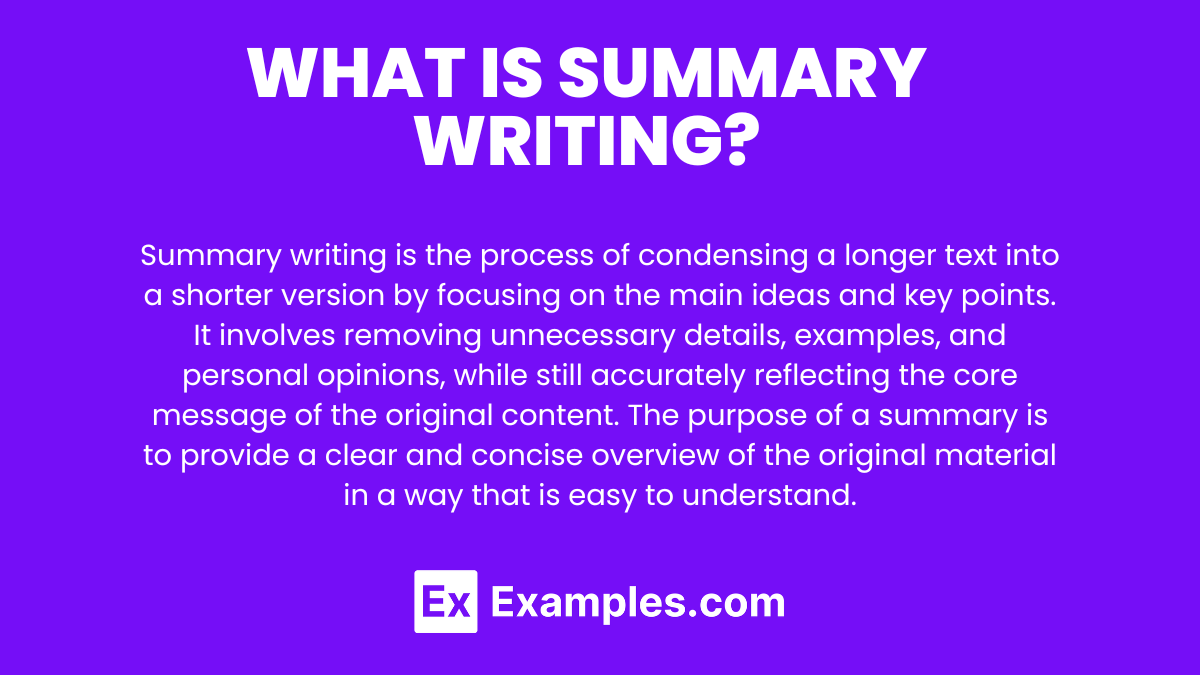
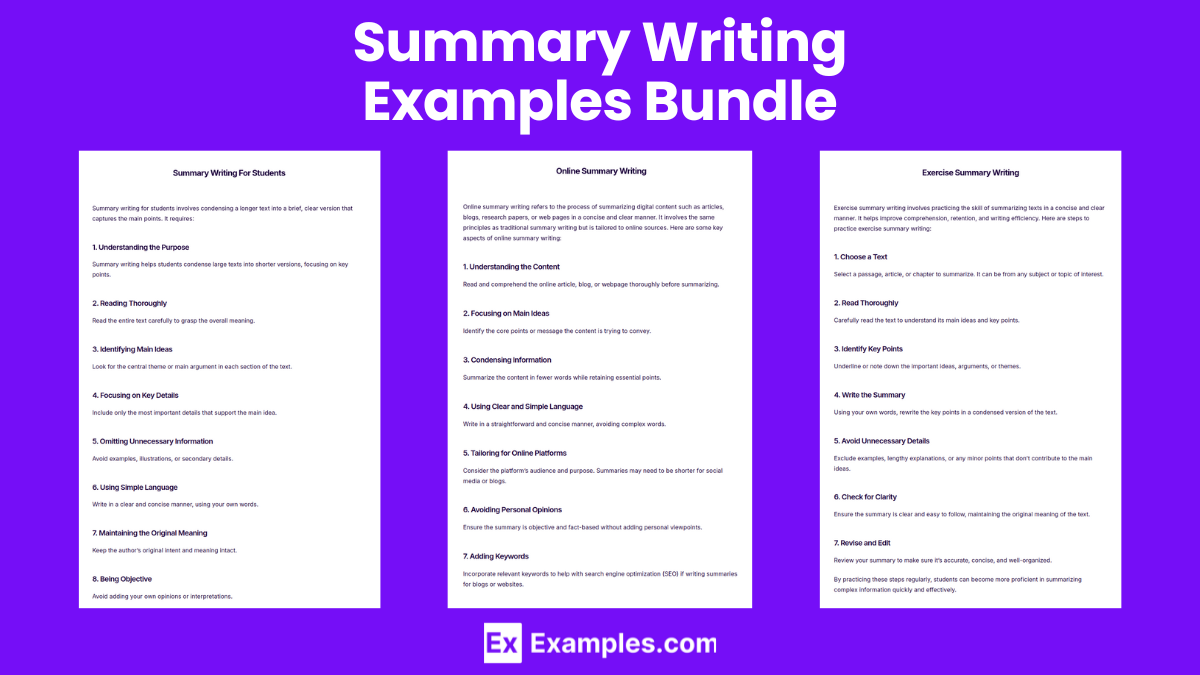
Download Summary Writing Bundle
Summary Writing Format
Opening Remarks
Greeting: Begin with a warm and respectful greeting.
Examples: “Good evening, everyone.” or “Ladies and gentlemen,”
Introduction
Purpose: Briefly state the purpose of your summary.
Example: “This summary provides a brief overview of the key points discussed in the document.”
Key Points
Main Ideas: Highlight the most important points of the content.
Example: “First, the document discusses the importance of planning and execution in achieving successful outcomes.”
Details: Summarize any significant details that support the main ideas.
Example: “It further explains the contributions of various stakeholders, including speakers, special guests, and attendees.”
Closing Remarks
Conclusion: Recap the central ideas and end on a final note.
Example: “In conclusion, the document emphasizes the collective effort required to make the event successful.”
Final Thought: Offer a closing thought or reflection.
Example: “This summary highlights the key aspects of the event and the gratitude expressed towards all contributors.”
Farewell
End with a polite farewell.
Example: “Thank you for reviewing this summary.”
Summary Writing Example
Good evening, everyone,
This summary provides an overview of the key points discussed during the event.
First, the document emphasizes the event organizers’ meticulous planning and execution, which contributed greatly to the success of the occasion. It acknowledges the valuable insights shared by the distinguished speakers and appreciates the presence and support of the special guests. Additionally, the attendees’ participation and enthusiasm were recognized as key elements in making the event successful. Lastly, the document expresses gratitude for the efforts of the support staff and volunteers, whose behind-the-scenes work ensured everything ran smoothly.
In conclusion, the document highlights the collective effort that made this event memorable, showing appreciation to all those involved.
Thank you for reviewing this summary.
Short Summary Writing Example
Good evening, everyone,
This summary provides a brief overview of the event.
It highlights the contributions of the organizers, the insights of the speakers, the support of the special guests, and the enthusiasm of the attendees. The support staff’s efforts behind the scenes are also recognized.
In conclusion, the event was a success due to the collective effort of all involved.
Thank you for reviewing this summary.
Summary Writing For Students
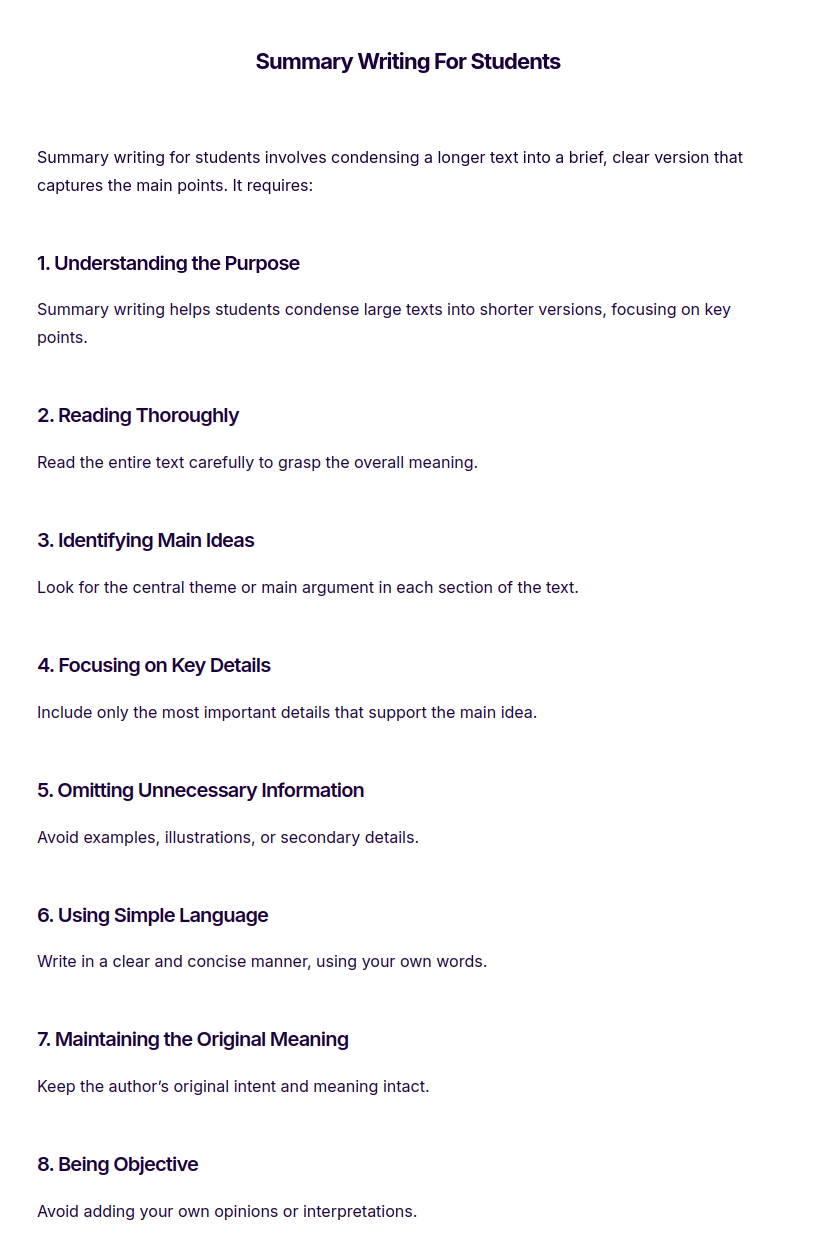
Online Summary Writing
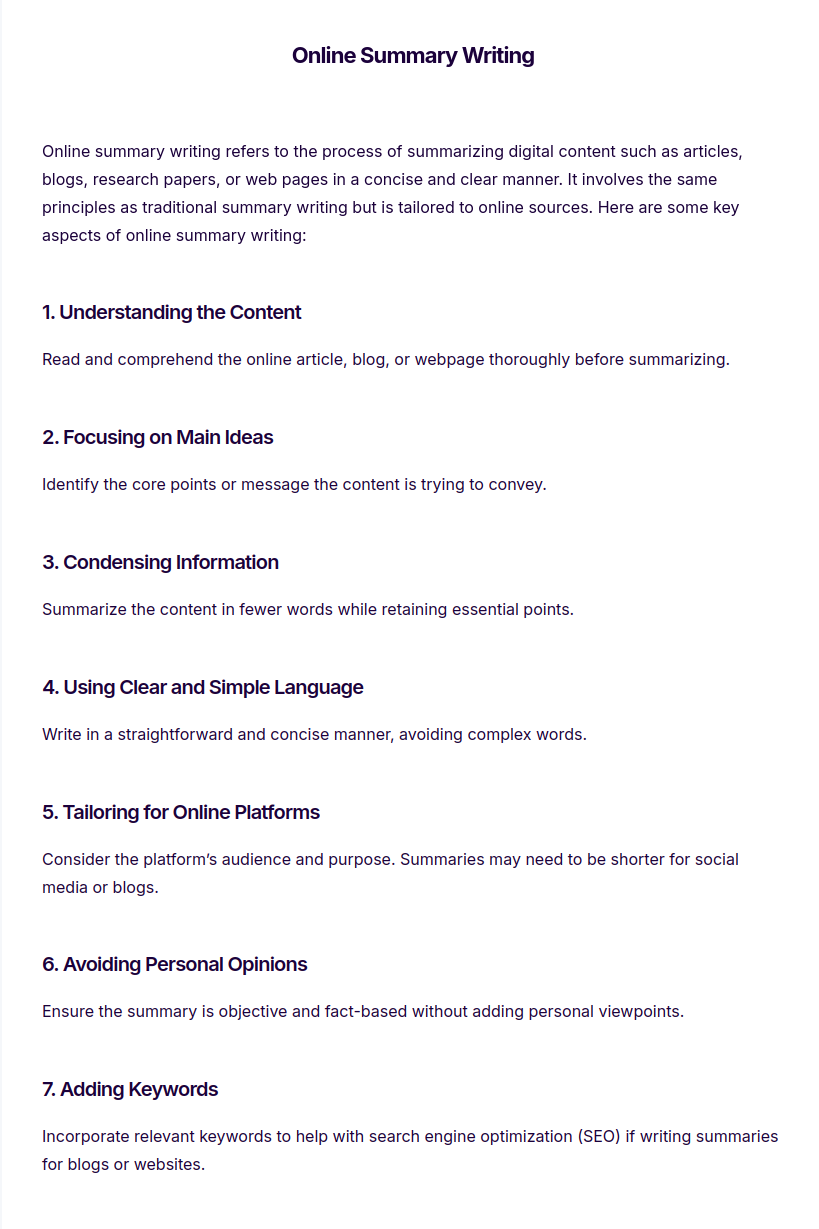
Exercise Summary Writing
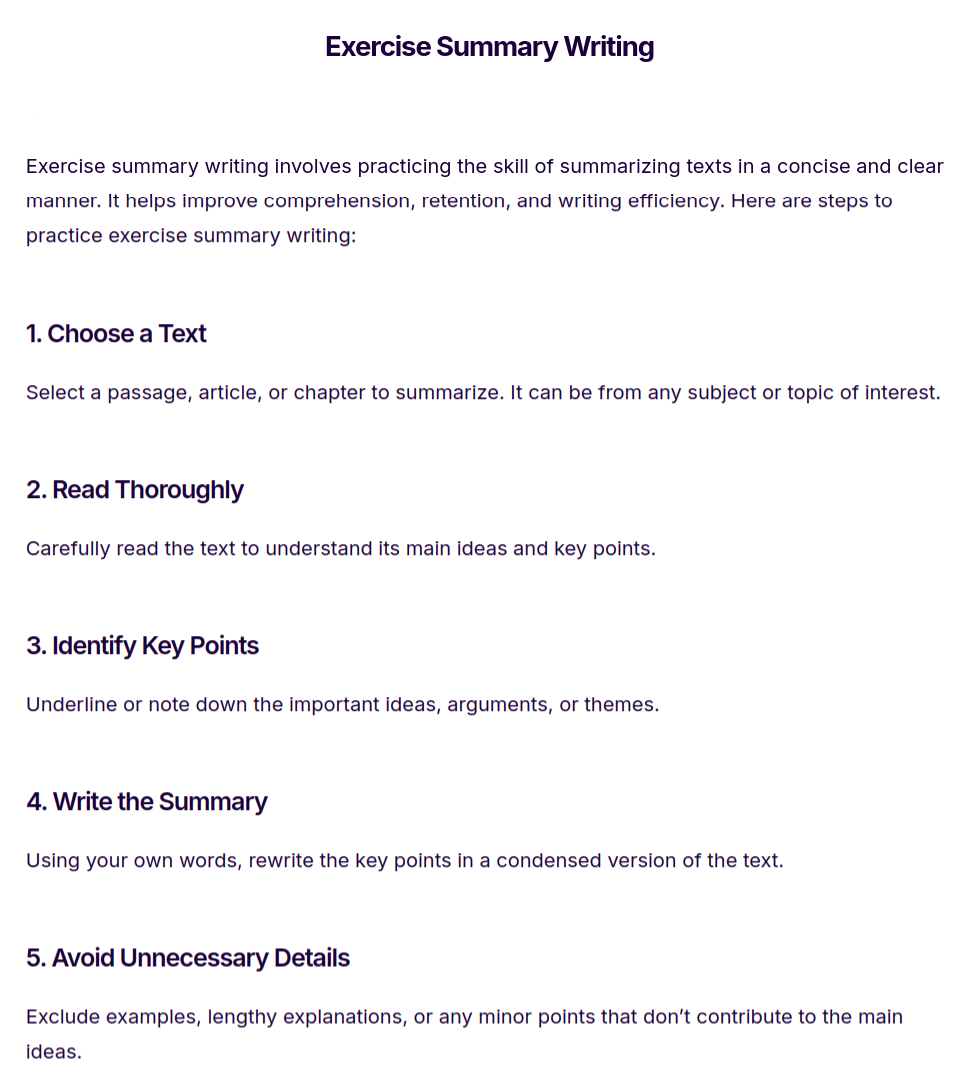
More Summary Writing Examples and Samples
1. Sample Summary Writing
2. Teaching Summary Writing
3. Worksheet Summary Writing
4. Writing Article Summary
5. Non Fiction Summary Writing
6. School Summary Writing
7. Writing an Academic Summary
How to Write Summary Writing?
Summary writing is the process of condensing a larger piece of writing into a shorter version while retaining its main ideas. It requires identifying the key points, paraphrasing, and presenting the information in a clear, concise manner. A good summary captures the essence of the original text without including unnecessary details.
Read the Original Text Carefully
Understand the content thoroughly before attempting to summarize.
Identify the main theme and key points.Identify the Main Ideas
Focus on the core message and the most important details that support it.
Omit minor details, examples, or unimportant information.Take Notes
Write down essential points or arguments made in the text.
Organize your notes logically.Paraphrase the Information
Rephrase the content in your own words without copying phrases from the original.
Ensure that the meaning is retained and simplified.Be Objective
Avoid adding personal opinions or interpretations.
Maintain a neutral tone and focus on factual information.Be Concise
Shorten the text by eliminating repetition and focusing only on important points.
Keep your summary brief and to the point.Review and Edit
After writing the summary, review it to check for clarity and accuracy.
Ensure it reflects the original content without losing meaning.
Importance of Summary Writing
Summary writing is a crucial skill that enables individuals to condense large amounts of information into a brief and clear format. It allows for efficient understanding of complex material by focusing on key points. In both academic and professional settings, summary writing plays a vital role in enhancing communication and comprehension.
- Enhances Understanding
- By focusing on the main ideas, summary writing helps individuals grasp the essential meaning of the text, improving overall comprehension.
- Boosts Retention
- Summarizing allows for better recall of important points without being distracted by unnecessary details.
- Saves Time
- Summaries provide a quick and efficient way to review large content, making it easier to focus on the most significant information.
- Improves Critical Thinking
- The process of summarizing requires the ability to analyze, evaluate, and extract relevant points, sharpening critical thinking skills.
- Effective Communication
- Summaries allow for clear and concise communication of complex ideas, improving written and verbal presentation of information.
- Supports Learning and Study
- In academic contexts, summary writing aids in better studying, allowing students to condense and review material more efficiently.
Tips for Summary Writing
- Read the original text thoroughly to fully understand its content before attempting to summarize.
- Focus on identifying the key points and the main idea, avoiding unnecessary details or examples.
- Paraphrase the information by rewriting it in your own words rather than copying directly from the text.
- Keep your summary concise, including only the essential information while aiming for clarity.
- Remain objective by avoiding personal opinions or interpretations; focus solely on the original content.
- Ensure the summary accurately reflects the author’s intent, maintaining the tone and purpose of the original text.
- Use simple and straightforward language to make the summary easy to read and understand.
- Review and edit your summary to check for accuracy, clarity, and conciseness, ensuring it conveys the main ideas effectively.
FAQS
1. What should I avoid in summary writing?
Avoid including personal opinions, examples, or direct quotes, and focus solely on the key points of the original text.
2. How does summary writing improve critical thinking?
Summary writing improves critical thinking by requiring you to analyze, evaluate, and determine the most important ideas from a text, allowing you to understand the material more deeply.
3. How should I handle complex texts when writing a summary?
When summarizing complex texts, break them down into smaller sections, focus on the main ideas of each section, and ensure the summary remains clear and concise.
4. How can summary writing help with public speaking?
Summary writing helps organize thoughts and distill information into key points, making it easier to communicate effectively and stay on topic during presentations.
5. Can summary writing help improve writing skills?
You can improve your summary writing skills by practicing regularly, focusing on identifying key points, and refining your ability to express these points concisely and clearly.


